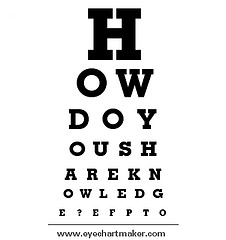
Photo courtesy of Alan Cleaver via Flickr
This week I met with folks who are interested in forming a writing group; many of us did not know each other and we were brought together by the lovely Sara Harris of UBC’s Department of Earth, Ocean and Atmospheric Sciences.
The meeting has prompted me to write about two different writing group structures I have been a part of, in the hopes that the ideas below may help others who are starting a group and/or looking for peer support in their writing.
1. Face to Face Regular Writing Group with Feedback
For a period of approximately four and a half years starting early in my PhD, seven of us from the same cohort decided to support one another in our writing. Once we agreed that we wanted to have weekly, face-to-face meetings (same day, time and location–for the most part) and that we wanted to get feedback on our written work, here is how we tackled some of the logistics:
Meeting coordinator: This position rotated and relied on one of us volunteering to set up a Google doc for a 2-month period. The Google doc had weekly dates and a line for “writer/presenter” and another for “reviewer”.
Attendance: We knew that there was no way all of us could make it to all the meetings. So, in the Google doc listed above, we indicated which meetings we could attend and whether we wanted to be “reviewer” or “writer/presenter” at the meeting. If less than three people signed up as reviewers, it was up to the writer/presenter to decide whether she still wanted to have a face-to-face meeting or whether she would be happy to receive feedback via email. She could also decide to sign up for another date when more reviewers would be present.
Writer/Presenter: Each of us would decide to sign up as a presenter when we knew (or believed) we would have a piece of writing ready. Writing could be a conference proposal, a section of a paper, an outline, or any other text that might benefit from a critical friend. The presenter would send out her writing to the attendees a minimum of two days before the meeting. Normally, the presenter would include brief instructions about what she was hoping to get feedback on, specifically (i.e. organization, clarity, flow, argument etc).
Length of work: As a group, we agreed that the maximum length of the text to review was 5 pages.
Feedback: Each reviewer would provide feedback to the writer/presenter. Some would note their feedback on a hardcopy, others would use track changes, and others would speak their feedback only.
Meeting structure: Our meetings were 1 1/2 hours long. We would do a very quick check-in, and then get right to feedback. We would go around the table and individually give our feedback to the presenter. We used “leftover” time to talk about life, including writing, studies, work, parenting etcetera.
Our group started to fizzle once most of us had completed our PhDs. However, while it lasted, it was terrific!
2. Occasional Face-to-Face Writing Group with “Calls for Feedback” Online
In another type of writing group I belonged to, five of us from the same department decided to support one another (three of us were completing PhDs and two were doing their Masters) in the following ways:
- Meet monthly for approximately one hour to check in and get a sense of what writing projects were on the horizon and when people would want feedback.
- Follow up the meeting with a quick email outlining who would be sending out writing and who would be reviewing that writing in the coming month.
- On the agreed upon date, writer would send reviewers the writing with any special instructions for feedback. Reviewers would provide feedback within required time frame (negotiated between writer and reviewers).
- Between meetings, if one of us had a piece of writing that we hadn’t anticipated needing feedback on, we could email the group with “Can anyone help me?” Group members could individually decide whether they could take on additional reviews.
Due to a number of different circumstances (graduated from program, moved away etc), we have not been meeting monthly for the past two years or so. Nevertheless, we still occasionally email each other with writing requests and someone always volunteers to review.



